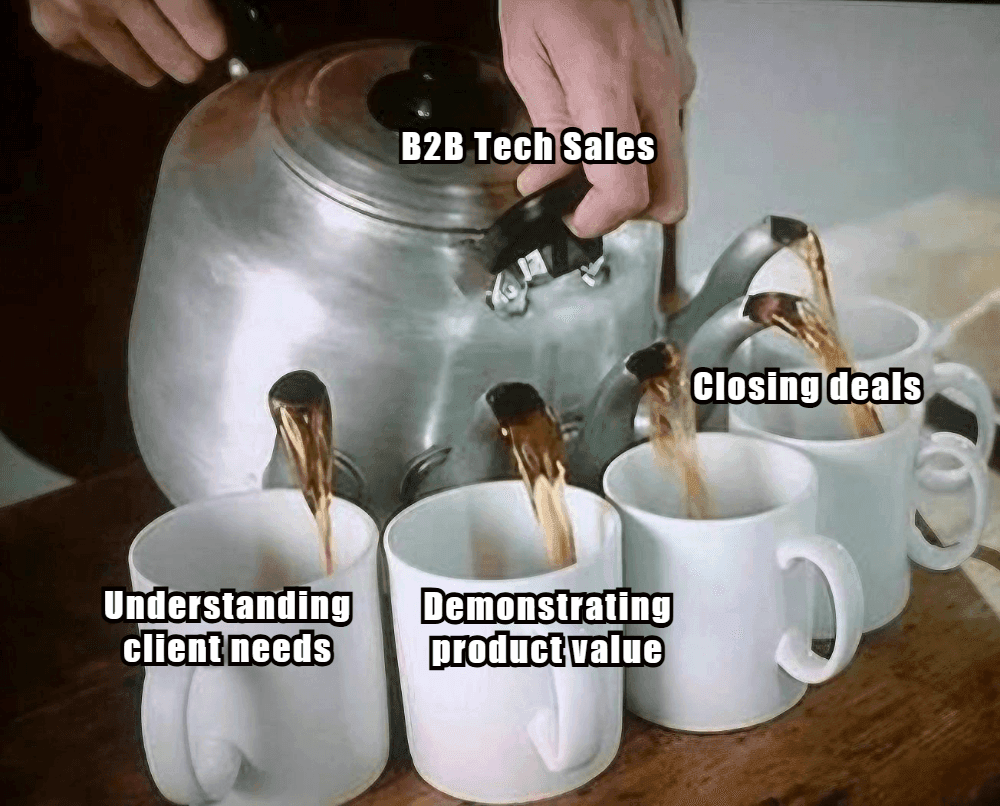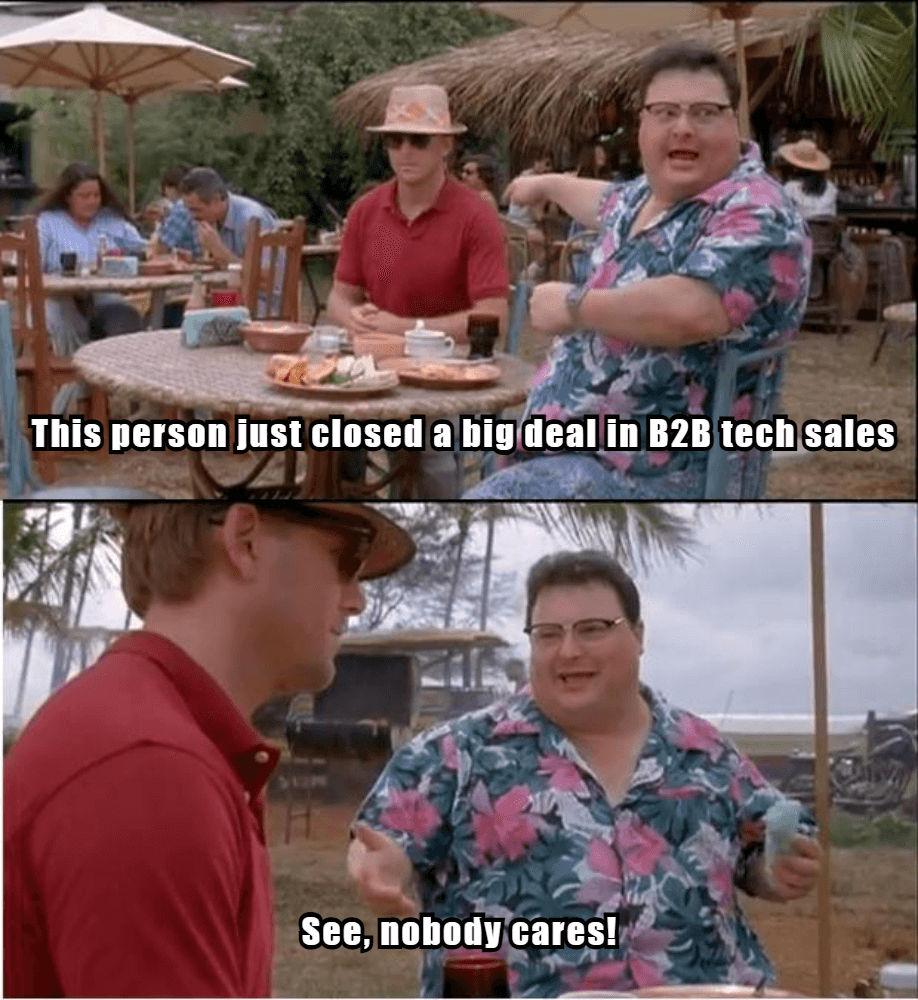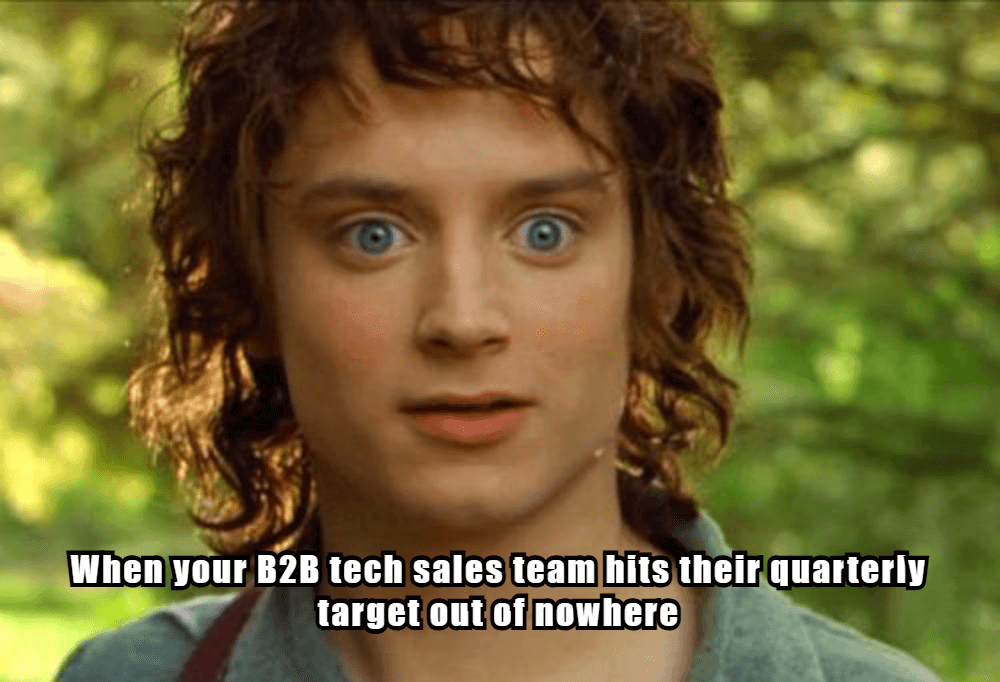Future of B2B Tech Sales: Trends to Watch Out for in 2025
As we step into 2025, the b2b tech sales landscape is changing dramatically. Technological advancements, shifting buyer behavior, and dynamic market conditions make it imperative for sales professionals and organizations to transform themselves to be competitive. The following analysis captures the most crucial trends that shape the future of B2B tech sales, providing insights on how businesses should prepare for challenges and opportunities that lie ahead in the future.
The Evolving B2B Tech Sales Landscape
Digital Transformation and Self-Service
The B2B tech sales industry is witnessing an accelerated shift toward digital channels and self-service options. According to research, by 2025, over half of all large B2B transactions- US$1 million or greater- will be processed through digital self-serve channels, including vendor websites and marketplaces. The growth is further spurred by the growing influence of Millennial and Gen Z buyers in purchasing decisions.
Key takeaways:
Sales teams need to make the transactions have an impact with a positive buying experience rather than merely processing the sales.
Organizations should invest in robust digital platforms that can execute complex B2B transactions easily.

AI and Automation: New Frontiers
Artificial Intelligence (AI) and automation will change the game of B2B tech sales. AI and automation would streamline activities, provide rich insights, and enhance decision-making capabilities.
Application of AI in B2B tech sales:
Lead scoring and qualification
Sales forecasting
Personalized content recommendations
Customer support chatbots
By 2025, AI agents and co-pilots will be the norm in B2B sales operations. This trend will free salespeople to do more high-value work and leave the mundane and data-intensive tasks to AI.
Omnichannel Strategies: The Future of Sales
B2B buyers increasingly demand seamless, multichannel experiences. To win in 2025 and beyond, omnichannel sales strategies will be critical.
Key Features of Omni-channel B2B sales
Message consistency across all touchpoints
Integration of both online and offline touchpoints
Time-real data synchronization across channels
Personalized experiences based on the preferences and the behavior of customers
Companies need to ensure that the buyer's journey is smooth, but it does not depend on the channels. This enhances not only the satisfaction of the customer but also the conversion probability.

New Sales Programs and Strategies
Solution Selling and Value-Based Strategies
With increasingly complex B2B tech products and services, selling strategies will now be on solutions rather than merely pushing features. In 2025, solution-selling and value-based approaches will play a very significant role.
Core components of solution selling
Understand the customer pain points in great depth
Tailored solutions to solve the specific business challenge
Focus on long-term value and ROI.
Salespeople need to be perceived as trust advisors, allowing potential customers insights and solutions that are outside the bounds of the immediate product offering.
Account-Based Marketing (ABM) and Personalization
There is a trend toward more targeted and personalized sales approaches, but for B2B tech sales, Account-Based Marketing (ABM) will look ever more intelligent through data and AI use that provides hyper-personalized experiences at the high-value account level.
Benefits of ABM in B2B tech sales:
Greater sync between sales and marketing teams
More conversion for the target accounts
The higher lifetime value of the customers
Personalization will spread from marketing into customized product propositions, pricing packages, and customer service. Exploring a digital marketing agency directory can lead to strategic partnerships that amplify the benefits of ABM in B2B tech sales.

Social Selling and Thought Leadership
B2B tech sales will have significant importance for social selling and developing thought leadership. Social media such as LinkedIn would play a more critical role in generating leads and establishing relationships.
Best Practices in Social Selling:
Sharing insightful content related to industries
Engaging with prospects through social media platforms
Creating a strong personal and company brand online
The sales professional who can effectively utilize the social platform to demonstrate his or her expertise and build a relationship will be at a significant advantage in 2025.
Evolution of Sales Professionals
Transactional to Consultative Selling
As more transactional aspects of sales are automated, B2B tech sales professionals will have to evolve into consultative roles. The focus will shift from closing deals to providing strategic value and insights.
Skills required for consultative selling:
Deep industry knowledge
Strong analytical capabilities
Excellent communication and relationship-building skills
Ability to navigate complex organizational structures
Embracing Data-Driven Decision Making
The successful B2B tech sales professional of 2025 will be highly data-literate. It will involve interpreting and acting on data insights for identifying opportunities, personalizing approaches, and demonstrating value to clients.
Key Data-driven Skills:
Ability to utilize CRM and analytics sales tools
Complex data sets' interpretation capability
Data-based forecasting and pipeline management
Continuous learning and adaptation
B2B tech salespeople will have to be continuous learners as technology evolves. Continuous learning to stay updated about industry trends, new technologies, and new evolving sales methodologies would be key success factors.
B2B Tech Sales: Technology Enablers
Advanced CRM Systems and Sales Enablement Platforms
Customer Relationship Management (CRM) systems and sales enablement platforms will become increasingly advanced, embedding AI and predictive analytics to provide actionable insights and automate routine tasks.
Features of the next-generation sales tools:
AI-based lead scoring and opportunity identification
Automated content recommendations at each stage of sales
Communication and collaboration capabilities
Advanced analytics and reporting

Virtual and Augmented Reality in Sales Presentations
Virtual and Augmented Reality technologies will increasingly take over B2B tech sales, especially complex products or solutions. These would allow for better demonstrations of a product and site visits virtually and make the whole sales experience so much better.
Blockchain for Transparent Transactions
Blockchain technology may start to impact B2B tech sales by 2025, offering increased transparency and security in transactions. For businesses handling digital assets, using the best crypto wallet ensures secure storage and seamless financial operations. This could be particularly relevant for industries with complex supply chains or regulatory requirements.
Challenges and Considerations
Data Privacy and Security
As B2B tech sales grow more data-driven, protection of customer information privacy and security will be crucial. Companies must tread through regulatory complexity and ensure building trust with clients about their practices in dealing with data.
Achieving the right balance between automation and human touch
Though automation and AI will indeed hold a prime spot in B2B tech sales, maintaining a human factor for customer relationships would become a requirement. Finding that equilibrium between being techno-efficient and relating to humans in the sales force would pose another challenge.
Agility to Shifting Market Environments
The B2B tech sales landscape is likely to remain volatile with new technologies and market entrants disrupting established patterns. Sales organizations will need to be agile and responsive to change, continuously adapting their strategies and approaches.

Conclusion
B2B tech sales will be challenging and dynamic into 2025 and beyond. To be successful, companies need to embrace change and the technologies it brings; keep pace with changes in the behaviors of their buyers; and focus on providing value to the customer. This requires keeping a watchful eye on these trends and investing in the right skills and technologies, and B2B tech sales organizations can better position themselves for success in this new landscape.
As we move towards 2025, the most successful B2B tech sales professionals and organizations will be those who can blend technological proficiency with human insight, creating personalized, value-driven experiences for their clients. The future of B2B tech sales is not about selling products or services but rather becoming a trusted partner in the success stories of their clients.
FAQs: The Future of B2B Tech Sales
1. How will AI impact B2B tech sales jobs?
AI will take over many mundane tasks, thereby freeing up time for salespeople to engage in strategic work. Some jobs may be replaced by AI, but new ones will be created for those who are able to work with AI to deliver high-value consultative selling.
2. What skills will B2B tech sales professionals need in 2025?
In the future, the salesperson will primarily be using analytics to drive recommendations, think more strategically, develop consultative sales skills, and cut through complex ecosystems of digital marketing.
3. How should a company prepare its B2B tech sales force?
An organization should embark on a strategy of digital transformation, up-skill their sellers, make sales strategies data-led, and also focus on frictionless omnichannel experiences with customers.